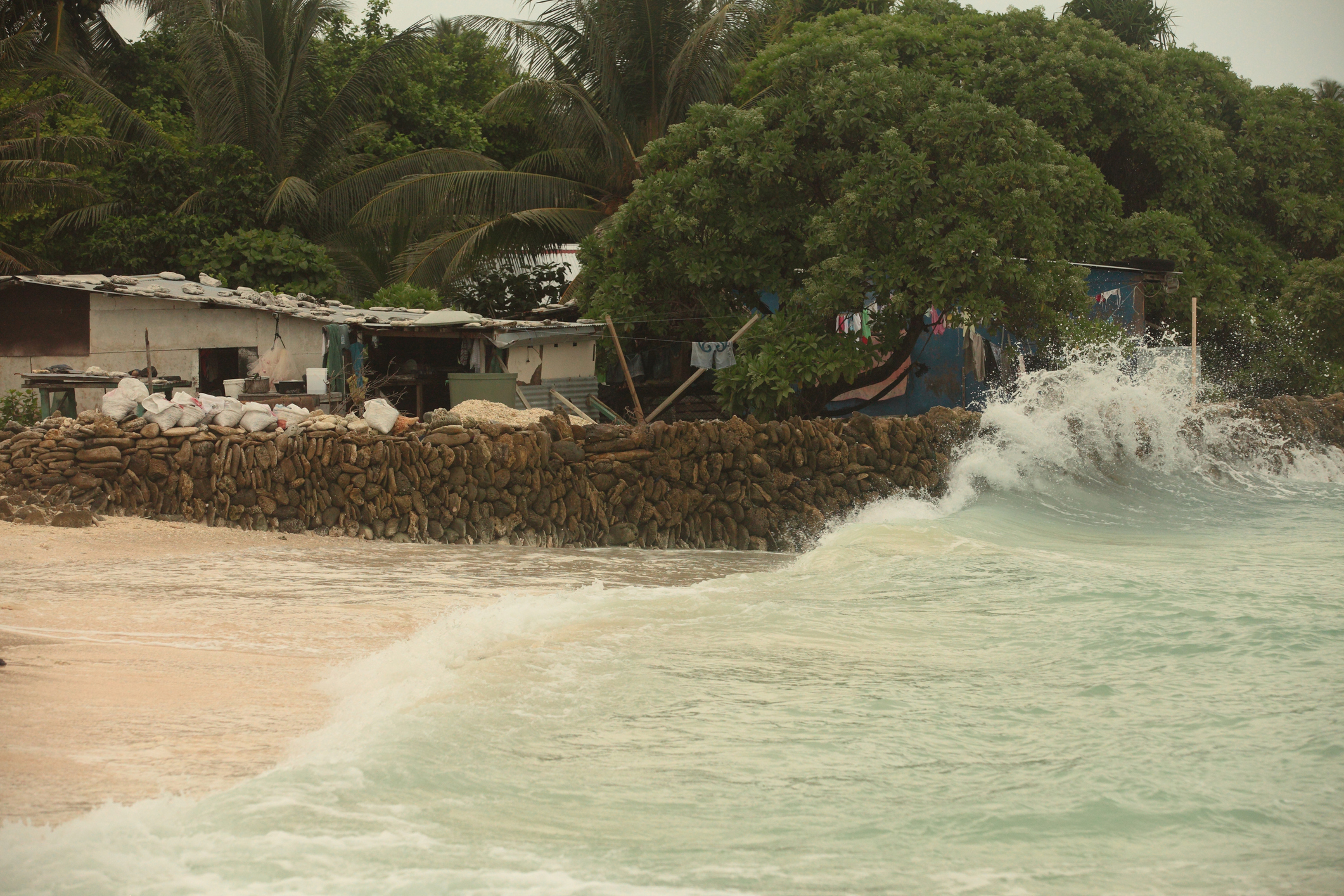
The world is seeing record sea level rises and devastating floods, storms, heatwaves and wildfires as climate change impacts grow, a UN report has said.
UN secretary general Antonio Guterres said “there is no longer any time for delay” on tackling climate change as the World Meteorological Organisation’s (WMO) state of the climate 2018 report was published.
The physical signs of climate change and the impacts on people are accelerating as record greenhouse gas concentrations drive global temperatures to increasingly dangerous levels, the report said.
The report details continuing increases in carbon dioxide levels in the atmosphere to new highs, sea levels rising at a faster rate as ice sheets melt, record hot oceans and the world’s glaciers in retreat.
Last year most of the natural hazards that affected nearly 62 million people were linked to extreme weather and climate events, said the annual report, which is in its 25th year.
Impacts have already been seen this year, with Tropical Cyclone Idai wreaking devastation in south-east Africa, record warm winter temperatures in Europe, unusual cold in North America and searing heatwaves in Australia.
WMO secretary general Petteri Taalas said Idai “may turn out to be one of the deadliest weather-related disasters to hit the southern hemisphere”.
In 2018, about 35 million people worldwide were hit by flooding and there were 14 “billion-dollar disasters” in the US, including Hurricane Florence and Michael which caused 49 billion dollars (£37 billion) of damage and more than 100 deaths.
Super Typhoon Mangkhut affected 2.4 million people and killed at least 134, mainly in the Philippines.
More than 1,600 deaths were associated with intense heatwaves and wildfires in Europe, Japan and the US, while Kerala in India suffered the heaviest rainfall and worst flooding in nearly a century.
Droughts, floods and storms had displaced more than two million people worldwide by September.
Growing numbers of people are going hungry as climate extremes such as drought threaten to reverse gains in ending malnutrition.
The indicators of climate change continue to grow, according to the report, which showed upper ocean heat broke new records in data going back to 1955, as the seas absorb more energy trapped by greenhouse gases.
Sea level rises are accelerating, with the global average 3.7mm higher in 2018 than in 2017, with melting ice from the ice sheets the main cause of the increase.
The oceans are becoming increasingly acidic as they absorb more carbon dioxide, while Arctic ice cover was well below average throughout 2018, the report said.
Professor Jonathan Bamber, director of the Bristol Glaciology Centre, University of Bristol, said: “Accelerating sea level rise due to climate change is now clearly identifiable from the satellite record covering the last 25 years.
“If this trend continues, then sea level rise could reach 65cm by 2100, creating an existential threat to small island nation states and displacing many millions of people.”
Dr Sally Brown, research fellow, University of Southampton, said: “This report highlights the increase in the rate of sea level rise and this is a real concern for those living in low-lying coastal areas, for both developed and developing countries.
“We know that sea level rise is a global problem that will not go away and efforts need to be made to help those who are really vulnerable to adapt to sea level rise or move to safer areas.”
Prof Dave Reay from the University of Edinburgh, said: “These past 25 years the WMO have carefully documented a gathering Perfect Storm where rising global temperatures and a destabilising climate combine with faltering food, water and energy security in a disastrous cocktail for humanity.
“This latest report lays bare how the impacts of climate change are now being felt in every sector and every ecosystem.
“For those who still think we can leave tackling climate change for tomorrow the message here is thunderous: the Perfect Storm is no longer brewing, it has arrived.”

Enjoy the convenience of having The Sunday Post delivered as a digital ePaper straight to your smartphone, tablet or computer.
Subscribe for only £5.49 a month and enjoy all the benefits of the printed paper as a digital replica.
Subscribe